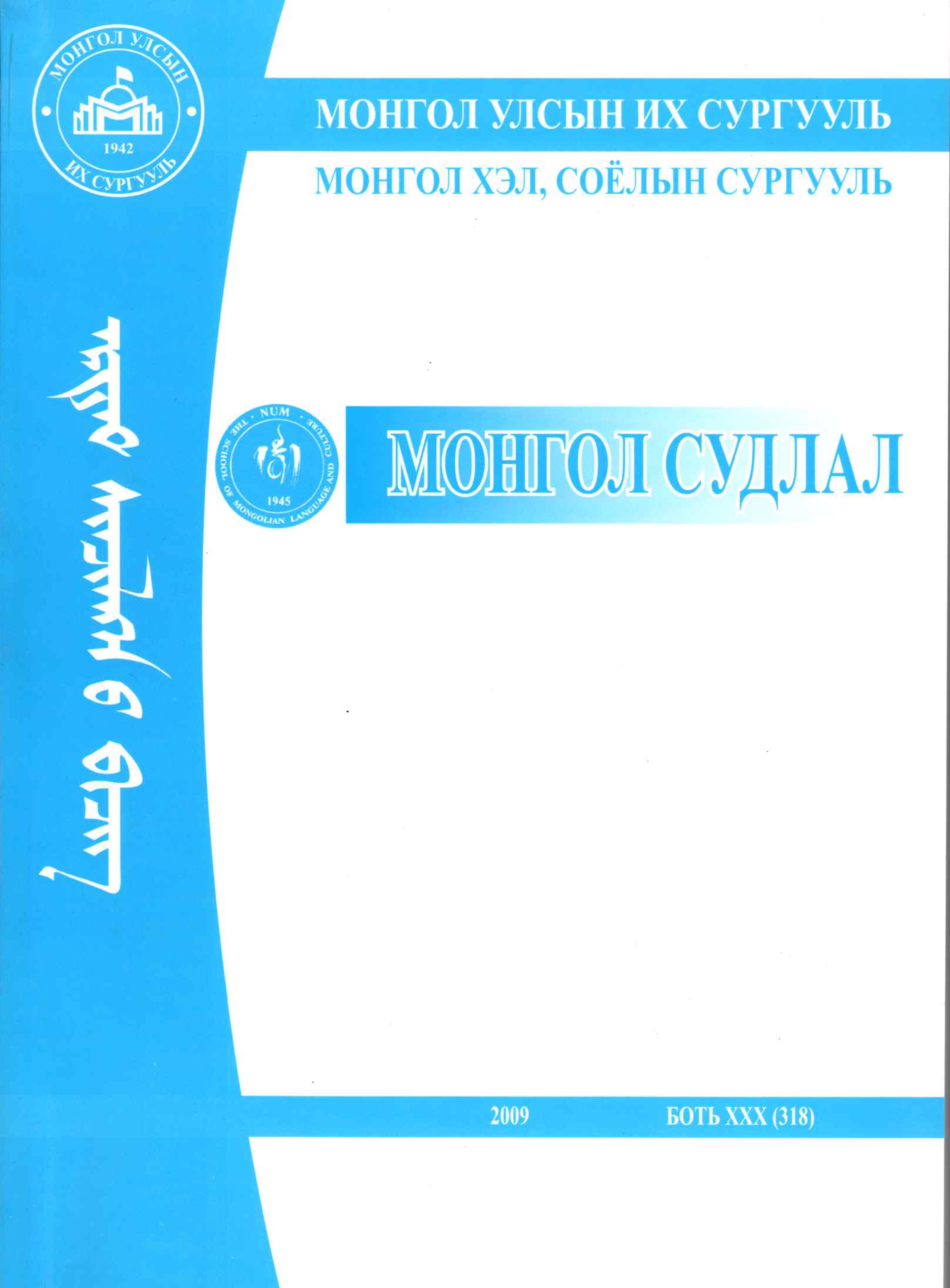Хар сүүдрээс гийсэн гэрэл гэгээ --- "Сүүдэр" уран сайхны киноны тухай---
The Light that Shone from a Black Shadow About the Movie “Shadow (Suuder)”
Abstract
The movie “Shadow (Sunder)” was first screened among the public in 1986. This movie was written by Sorogdogiin iargalsaikhan (1957-2007), who was a D.Natsagdorj's named Prize writer and was directed by Mongolian State Prize cameraman/director Begziin Baljinnyam (1943-). Mongolian Honoured actor Gombyn Ravdan (1952-) portrayed the leading role of Dugar, who evokes the harsh days of the Khalkh River War. Mongolian State Prize actor Tsegmediin Tumurbaatar (1956-) played the role of his friend Ulzii who is from the same motherland but sadly dies on the battlefield of the Khalkh River War. Tsevel, the woman who starts having sexual relationships with Dugar after the death of her husband Ulzii and gets pregnant was played by actress Dorjiin Dolgorsuren (1958-) and Sandag, the only son of Ulzii and Tsevel, who despises Dugar was played by T.Otgonbaatar.
The directors of photography were B.Baljinnyam and Dechinravdangiin Balchinpurev (1950-) and the art director was Puntsagiin Sosorbaram (1947-). The movie music was composed by Mongolian twice-declared State Prize composer Natsagiin Jantsannorov (1948-) and the historical background of the movie was advised by Prof. Yadamsurengiin Shaariibuu (1909-2009), who was a Mongolian Honoured teacher, honorary professor of the National University of Mongolia and former army colonel of “Manj Go (Manchukuo)”.
There are many heroic war movies that were made during the socialist period, which were intended to exalt the fighting spirits of the nation. Compared to movies like “Listen Here, You Enemy Soldiers” (1971), “The Battles in Gobi Desert and Khingan Mountains” (1981) and “The Beginning of the Undeclared War” (1984) which were made by “Mongol
Kino” or collaborated with “Mosfilm”, the movie “Shadow” differs in a way that it erases the historic ideology made up in the days of the Cold War, that “the Khalkh River War was a battle where Mongolia allied with the Soviet Union to defeat the aggression of Japanese militarists and protected the independence of the Mongolian People’s Republic” and instead we can see that it tries to depict the common understanding of how wars and conflicts can severely affect the lives and destinies of people.
Even though the ill memories of war that upset Dugar every so often were cruel and ruthless , the film was not intended to promote the above ideology but to express how the brutal and merciless events of war can leave a haunting mark on one’s personal mentality. Of course, even though Ulzii was the only one who lost his life during the battle, the scene where he had killed the Japanese officer with his bayonet before dying is sure to put Mongolian viewers into mental catharsis.
The film finishes with trie scene of Sandag finding Dugar, who was trying to commit suicide with his gun, and dragging him home where his newborn baby lies. We could conclude that this is a depiction of Dugar being pulled from г dark shadow to light and from
death to life. Also, since this period all types of transformations started and it wouldn’t be too wrong to say that it symbolizes the gradual diminishing of Mongolians’ dislike towards Japan.





